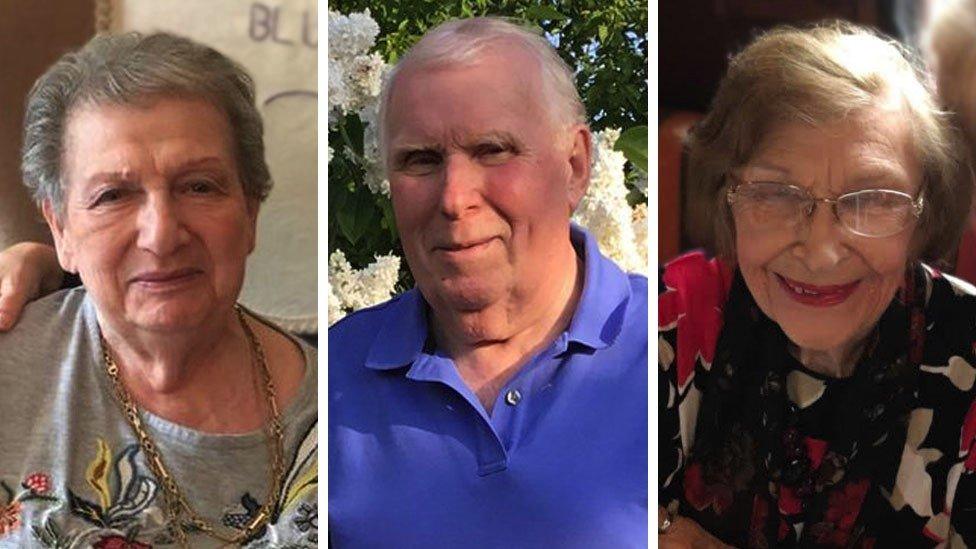Covid: Students and retirees form long-distance friendships
- Published
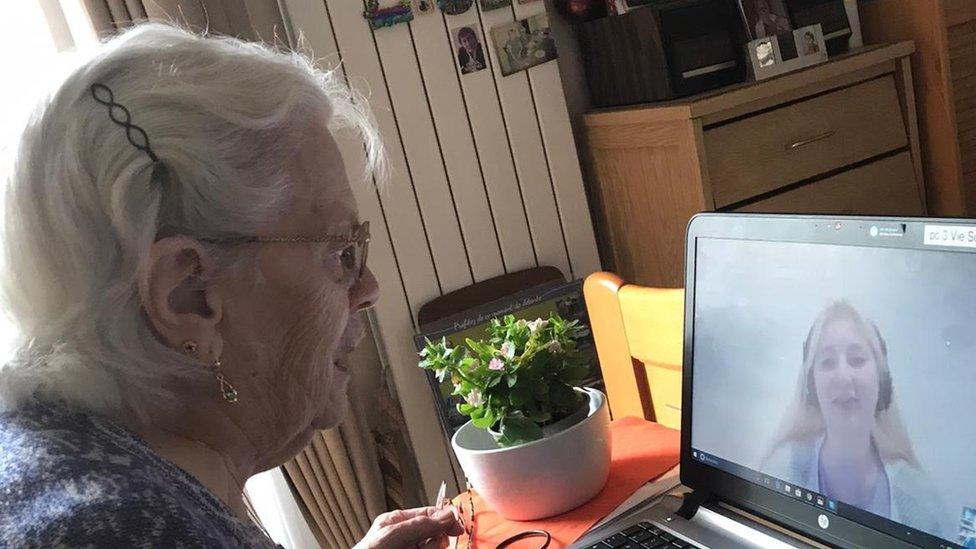
Millie Jacoby's tweet about a virtual meeting with her "French grandma" went viral
Millie Jacoby met her new "French grandma" for the first time last week via video call.
The 21-year-old British student signed up to a scheme pairing language students with elderly French people, some of whom have been left isolated by the coronavirus pandemic.
"I thought it would be a great way to improve my language skills and get to know somebody who was possibly lonely," Millie said.
"My French grandma, as we call them, is in a retirement home and might not be having too much social interaction because of the pandemic so I thought it was the perfect time to do something like this."
Despite the 70-year age gap between the Warwick University student and the senior citizen living near Paris, they instantly hit it off.
"She was just so lovely from the first few sentences," Millie told the BBC.
"We talked about travelling. We spoke about the times I've been to France and what I thought of it. We spoke about the differences between what her life was like as a young person compared to mine."
A Twitter post about their "wholesome" exchange went viral over the weekend, sparking a surge of interest in the programme.
Allow X content?
This article contains content provided by X. We ask for your permission before anything is loaded, as they may be using cookies and other technologies. You may want to read X’s cookie policy, external and privacy policy, external before accepting. To view this content choose ‘accept and continue’.

The Share Ami scheme, external, by French non-profit organisation Oldyssey, has created 30 pairings since launching in May. But in just a few days, they received enquiries from almost 3,000 more people from countries around the world wanting to sign up.
"We didn't expect it to go viral at this time so students will be waiting for some months I think before we find seniors for everybody. We will have to contact a lot of elderly homes in France and we want to do it all properly," said Oldyssey co-founder Clement Boxebeld.
Clement said he had got the idea for the scheme in 2018 while on a trip to Brazil, where a language school had formed relationships with retirement homes in the US and Canada.
"We loved the idea and thought about it for two years but didn't have time to make it happen" until the pandemic suspended other projects.
"We thought it was the right moment to launch it because elderly people are especially at risk with the virus. First they couldn't go outside and then after confinement, because they are at risk, a lot of seniors are still afraid to go outside. We wanted to find ways to create links despite the social constraints we had," he said.
"There were a lot of initiatives to create links with older people but we wanted also to highlight the fact that older people can be useful to the younger generation."
As well as connecting the older French people with students, volunteers with the project offer technology support and sit in on the first meeting to ensure there are no awkward silences.
Clement said it had been "very funny" to see two strangers meeting via video call, noting that they "very quickly find things to say".
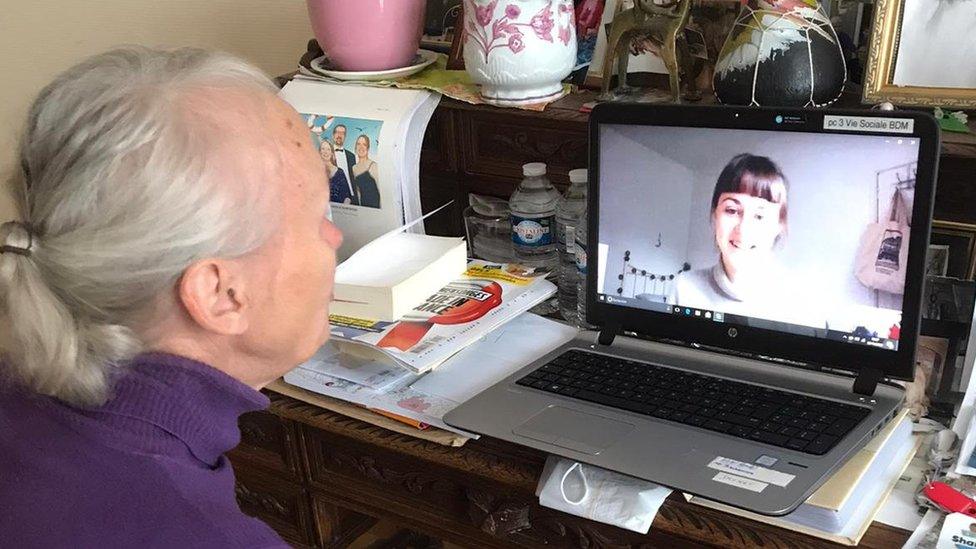
Project founder Clement Boxebeld says the participants quickly find things to talk about
In a retirement home on the outskirts of Paris, 80-year-old Claire Biet was enjoying her second half-hour chat with a student on Monday.
"We spoke about everything," she told the BBC, adding that discussions ranged from popular French book Le Petit Prince to her travels to the Sahara desert.
"She [the student] makes a lot of effort. She corrects herself when she feels she's said something that was not quite right. She's always on the lookout for better ways to express herself. It's exciting," Claire said.
Claire is one of five residents at Résidence du bord de Marne taking part in the project.
"Our residence has always been open to the outside world. During lockdown we were cut off - there was no exchange with younger generations," said retirement home worker Christal Pethuis, who has been helping to coordinate the calls.
"We used to have a daycare section. Now we don't see children anymore, and residents miss them. So I was immediately attracted to the idea of organising impromptu conversations with young people."
But it is not just the older people who benefit from the relationships.
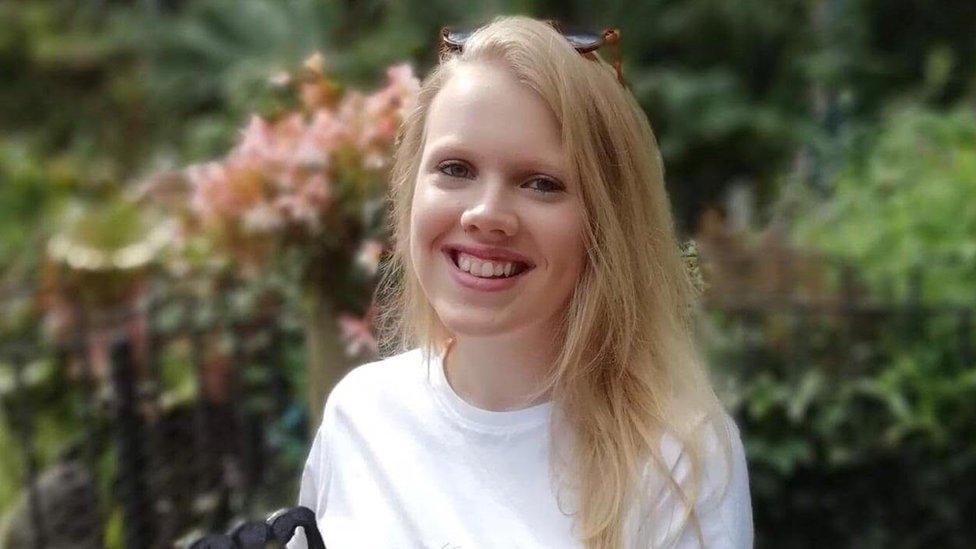
Isabel Cartwright was one of the first students to sign up
British student Isabel Cartwright was one of the first people involved in the project. The 20-year-old said she took it on "as something to make you feel worthy during lockdown and give you value and things like that". But the weekly chats have ended up helping her too.
"My oral French has always been a struggle for me…so speaking to [my partner] Martine has been fantastic. She speaks clearly and a little bit slower for me sometimes. She's very patient, and offers alternatives to what I've said but in an approachable manner. It's just fantastic," she says.
Back in France, Marie-Josèphe Anduze-Faris, who goes by the nickname MiJo, has weekly conversations with two students in South Korea and Uzbekistan.
MiJo, a "silver gamer", says she has "contacts with young people all over the world" through video games and is already adept with technology.
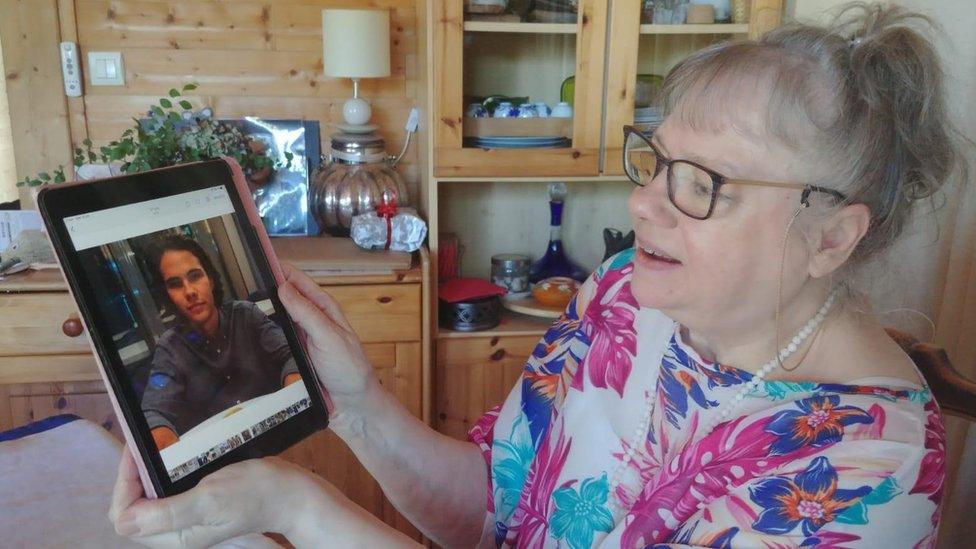
MiJo, 76, is speaking to a student from Uzbekistan through the project
But she says teaching French-language students has helped her to feel "useful" through the pandemic and led to new friendships. She jokes that the conversations give her the chance to practice her "soft slang", preparing the students for real-life conversations with their French peers.
"I love laughing so we often laugh and through laughing I think you teach better and you learn better. It's very important," she says.
One of the students plans to visit France soon and the pair have arranged to meet for a video game.
Additional reporting by Henri Astier

You might also be interested in:
Robots help care home residents stay in touch
- Published16 April 2020
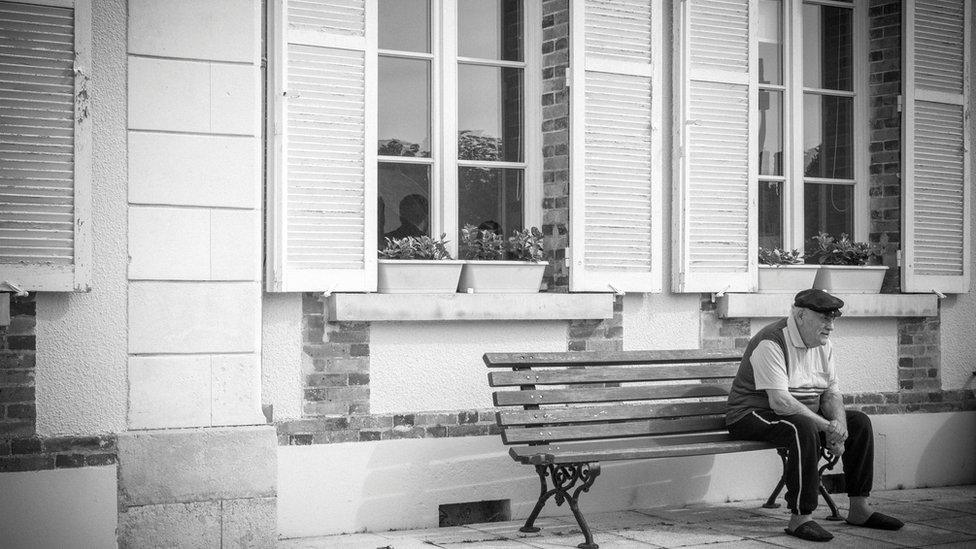
- Published4 October 2020
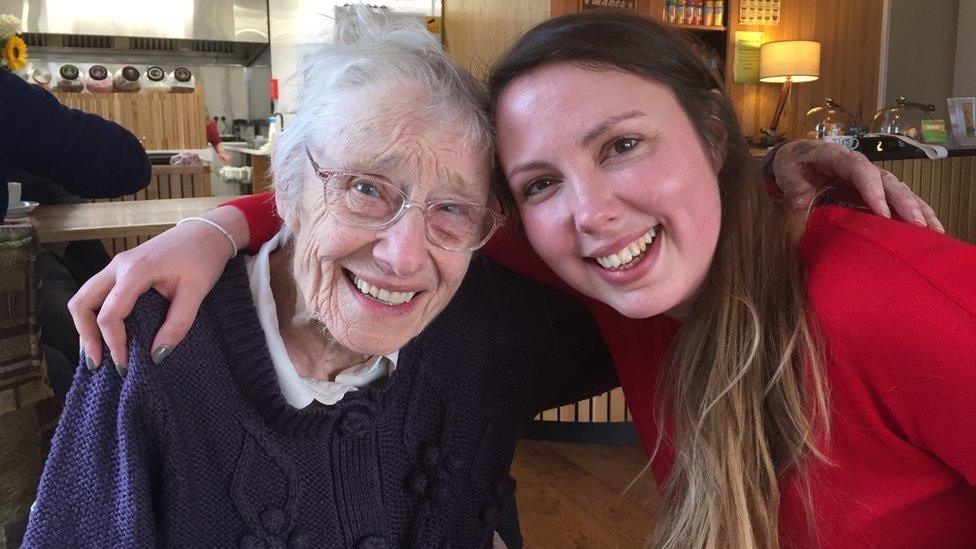
- Published18 October 2020
